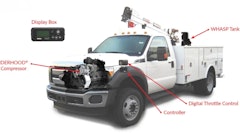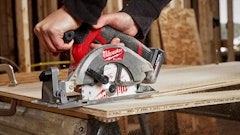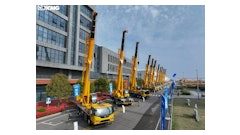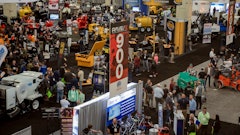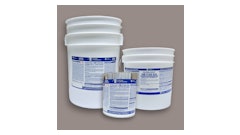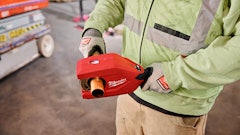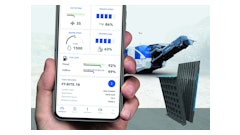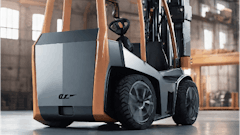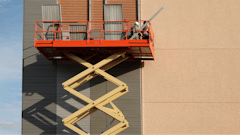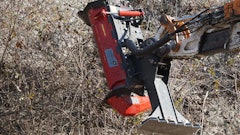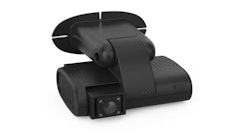As one of the most rented items in any rental inventory, drain cleaners can be a very profitable item because they are always in demand, no matter the season or economy.
Despite their dependable profit potential, drain cleaners can present some challenges to the rental business that needs to keep them cleaned and maintained while protecting its customers from the hazards that can result from careless or incorrect use. The solution to both the maintenance and safety issues is communication with your customers. If you can effectively convey proper care and operating procedures to your customers, you stand a better chance of reducing maintenance costs while ensuring your customers’ safety.
Clean machines
Considering the environments where drain cleaners work - most notably, sewer pipes - it’s safe to say that these are not the shiniest tools in your shop. In fact, thinking too much about where these machines have been is enough to make even those with a tough constitution reach for an extra pair of rubber gloves.
Aesthetics aside, there are health and safety reasons for making sure your drain cleaners are kept impeccably clean and sanitary, says Marty Silverman, vice president of marketing at General Pipe Cleaners. The cleanup and repair of drain cleaners is important to keeping them working efficiently as well. Cleaning the machines is an important first step to maintaining them for the long run and it begins with an overall inspection of the unit when it’s returned from rent. It’s very important to inspect the whole drain cleaner, especially the cable.
In addition to the ubiquitous dirt and debris, it’s not uncommon for machines to come back from rent with the cable tied in knots. This problem must be remedied before the unit goes back on the floor, as a kink can be dangerous to the operator and cause damage to the pipe, according to Mark Speranza, vice president of sales with Electric Eel.
After inspection, the next step is cleaning the cable. According to Speranza, it’s important to wash the cable as soon as possible upon return in order to get rid of any drain cleaning chemicals, as they will slowly break down the chemical composition of the wire used to make the cable and weaken it.
Because drain cleaners are often rented by homeowners who are unaware of the proper cleanup procedures, instructing customers before they leave your yard can go a long way toward getting a clean machine upon return. Explain to customers that spraying the unit with a hose is not going to adequately clean it. A solution which can be used to clean the cables consists of one part chlorine bleach and 20 parts water.
To get cleaner machines returned from rental, some rental businesses charge a fee to customers if the unit is returned dirty. This encourages customers to do the cleaning work for you. Some manufacturers offer a lubricating oil just for drain cleaning snakes that contains a disinfectant, a rust inhibitor and a deodorizer. Using this regularly can extend the life of your drain cleaners many times.
Safety first
A thorough inspection can also find safety hazards on your drain cleaners.
Each time a machine is returned to the shop, Silverman says, it should be checked for worn or damaged insulation on the power cord and extension cords, pulled out strain relief grommets, dangling switches and missing ground prongs.
Renting a piece of damaged equipment could lead to electrical shock for the end user. Units should never be rented with a tear or cut in the power cord.
All machines should have a ground fault circuit interrupter (GFCI) which detects as little as five milliamps of leakage and shuts off the machine before the operator can be injured or electrocuted. Silverman notes that the GFCI should be integrated into the power cord so that not only the machine but the cord is protected as well. It’s also possible to purchase extension cords that have an in-line GFCI. OSHA has taken the position that a GFCI is required whenever an extension cord is used.
Silverman adds that if you have a machine without a pneumatic foot pedal, just putting a GFCI at the end of the power cord will reduce the chance of electric shock and make the machine significantly safer.
Protect your customers
The first line of defense is always the operator’s manual. Every machine comes with one. Be sure to read it and keep it with the machine for the duration of its useful life. In fact, make several copies and be sure one goes out with the unit with each rental. Many manufacturers offer a variety of safety and instructional materials - such as pamphlets and videos - at no cost to the rental operator. Be sure to put them to use.
Despite your best efforts to prevent them, injuries with any type of equipment are a possibility. Hand injuries are a major concern with drain cleaners. Manufacturers recommend instructing customers to avoid wearing loose-fitting clothing and to always wear leather gloves when operating a drain cleaner. Cloth and rubber gloves are to be avoided because they could get caught in the rotating cable coils. Only leather gloves will protect hands and fingers from severe injury.
To further reduce hand injuries, only one person should operate the drain cleaner at a time. The same person should be controlling both the cable and foot pedal or on-off switch.
Safety glasses should also be worn at all times during operation. This is to protect the eyes from debris that might fly up from the drain as it is being cleaned.
Not only do gloves and glasses protect your customers’ safety, they also present excellent opportunities for add-on sales that can boost your bottom line.
Silverman makes one last note on safety. "Make sure you rent your customers the right tool for the job," he says. "A machine that’s too large or too small for the line can cause damage to the machine, create an unhappy customer and possibly result in an injury through misuse."
Power up
Instruct customers to be sure the machine is plugged into a properly grounded outlet. If there is doubt, instruct them to check the outlet with a ground checker before plugging in the machine. And always use the right size extension cord for the machine.
If the power cord supplied with the machine is not long enough, Silverman notes, be sure to use a three-wire, heavy-duty extension cord that’s in good condition. Using lighter cords can result in severe power loss and motor overheating. Use a 16-gauge cord for 1/3- and 1/2-hp motors, 14-gauge for 3/4- and 1-hp motors, and 12-gauge for 1-1/2- and 2-hp motors. The extension cord should be no more than 50 feet long.
Lastly, if the drain cleaner is to be left unattended, instruct customers to both turn off and unplug the machine.
Returning from rent
Once a machine is back in your hands after a rental, be sure to check it over for problems right away. Check the cord to be sure it is not frayed or damaged and make sure the cage of the machine is not bent.
Further, all electrical connections should be checked and the cable should be inspected for kinks and damage. If everything is in good working order, the cable should be lubricated to protect it from rust.
Not matter what safety features a machine has, it’s only as safe as its operator. The best way to ensure the safety of your customers renting drain cleaning machines is to educate your employees, for they are the ones who will be instructing the user. Take the time to train employees on the safe operation of your equipment, because a safe customer is a satisfied customer and a safe drain cleaner is a productive - and profitable - drain cleaner.



